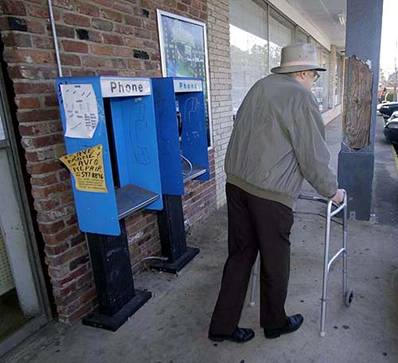|
|
Elderly who Can't Pay Taxes Losing Homes
By Jennifer C. Yates, the Seattle Post Intelligencer
March 31, 2004

PITTSBURGH - Joan Ivey worries about her mounting tax bills. After borrowing money to keep her home from auction last year, the 69-year-old worked out a payment plan on her unpaid taxes of more than $8,000.
But she knows the 2004 bill will soon be in the mail.
"One of the things that really concerned me was that the highest portion of the property tax was for schools taxes. I just feel that after a point, older people shouldn't be paying school taxes," said Ivey, whose two children are adults with three sons of their own.
In recent months, the city has gotten more aggressive in going after homeowners who fall behind on their taxes. For the elderly on fixed incomes and living longer than ever before, that means many are at risk of losing their homes.
By law, the city can seize homes and sell them for back taxes at a treasurer's auction. Homeowners who don't pay the debt within 90 days of the auction will lose their homes.
"Financially, they're not able to live to 85," said Cindy Gilch, executive director of Rebuilding Together Pittsburgh, a nonprofit that provides seniors with emergency home repairs. "Whether that involves not being able to keep up a critical home repair, or not keep up with taxes - they are all inter-related."
The issue is playing out in cities across the country.
In Arkansas last May, Buck and Robbie Jones lost the home they lived in for 40 years because of about $3,700 in back taxes for 1996 through 1999. It was sold at a sheriff's auction for $18,341.70. In Los Angeles, Terrell Dotson's home was put up for auction in 2002 because of an unpaid $546 tax bill.
In November, Helene Shue, 89, of Hershey, was threatened with losing her house of 55 years because she owed $572 on a tax bill from 2001. The house was auctioned off at a county tax sale but later returned to Shue after the buyer heard her story.
No national figures exist that reflect the number of Americans over 60 whose homes were seized because of unpaid taxes or foreclosure.
However, last year in Allegheny County, home to Pittsburgh, more than 4,300 homes were listed for sheriff's sale either because of foreclosures, to pay off judgments or because of back taxes. The number is expected to top 6,000 this year, and many attribute the increase to more aggressive efforts to collect taxes.
City Council President Gene Ricciardi has called for a moratorium on treasurer's sales until the problem can be studied. He chaired a meeting on the issue with about 50 people from government, utilities and tax relief programs.
"I'm very alarmed and very concerned about the record number of people - all individuals and especially seniors - losing their homes," Ricciardi said.
In some cases, he said, the city needs to help seniors work with their families because the homes may be too big for them now. There are many programs that can help seniors before their debt becomes so unmanageable that the house is auctioned, he said.
When John Fink received notice in the mail about unpaid taxes on his Pittsburgh house, he contacted the Homeowner Preservation Project, a group that helps homeowners manage their debt and keep their homes. The group is trying to renegotiate Fink's mortgage to lower his interest rate.
Fink, a World War II veteran, said he never liked to ask for help, but he knew he had to this time.
"I was always proud. I worked all my life. I always tried to pay my bills," said Fink, whose tax bill is about $1,000 each year. "Things are a little tough on senior citizens."
At least 48 states, plus the District of Columbia, have one of three kinds of programs to provide property tax relief for seniors, according to the National Conference of State Legislatures. The state programs are generally homestead exemptions, rebates, or tax deferrals; there are also a myriad of local programs, depending on where someone lives.
Clare Hushbeck, an economist at AARP, said that despite the tax abatement programs available, many seniors don't participate in them either because they don't know about them or they are too embarrassed.
"Some of it is just that sort of pride," Hushbeck said.
Hushbeck said the AARP is considering endorsing legislation that would make it almost impossible to get to the point where a home is auctioned off by being more proactive in working with homeowners who may be in need.
Ron Rakow, Boston's commissioner of assessing, said the city offers exemption programs that can reduce a senior's tax bill by up to $1,000 or a tax deferral program where anyone 55 and older can defer all or a portion of their property taxes for as long as they occupy the house.
Still, Rakow said it's hard to convince some people to take advantage of what's out there.
"Seniors are reluctant to participate because they like leaving houses to their family," Rakow said.
In Pittsburgh, Ivey said she has looked into a couple of government-sponsored abatement programs, but didn't qualify for some of them. She's hopeful she can stay in good enough health to keep working part-time managing a stroke support program. But she questions why she even has to pay property taxes, most of which go to the public schools, when her children are beyond school-age.
"I think the politicians need to do something about that," Ivey said.
|
|



